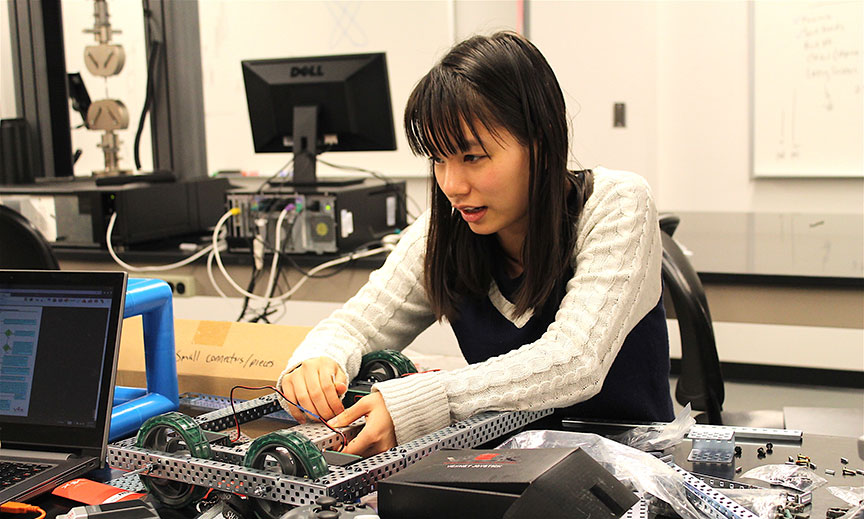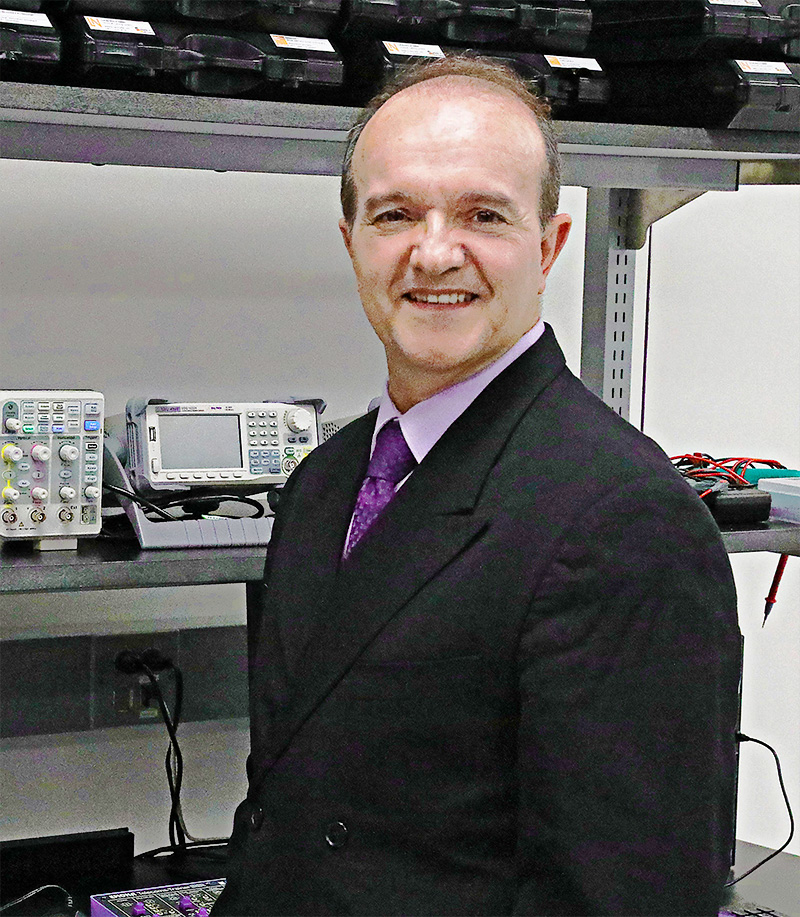The University of Mount Union’s minor in electrical engineering degree provides students with hands-on experiences in the application of scientific and mathematical principles utilized to design, manufacture, and control structures, machines, processes, and systems.
The discipline of electrical engineering embodies many fields such as microelectronics, electromagnetics, computers, power systems, controls, robotics, telecommunications, signal and image processing, instrumentation, solid state materials and devices, software development, bioengineering, and mechatronics. Real-life applications include power generation and distribution, electronic communication systems, manufacturing automation, aerospace avionics systems, sensors and instrumentation, medical diagnostic tools, signals, and image processing.
About Electrical Engineering at Mount Union
Taught by our outstanding engineering faculty with expertise in the many fields that make up electrical engineering, general education courses in chemistry, physics, calculus and an overall view of the engineering profession as well as analysis and design make up the entire program. Throughout your years at Mount Union, you will engage in our dynamic curriculum that is strongly focused on real-world application. You will gain hands-on experience through a required international experience in the field as well as through the engineering capstone design course.
-
94%
Paid Internship Placement Rate
-
100%
Placement rate to careers in industry or graduate schools (Class of 2019)
-
Design
Your own prototypes and put them into practice

